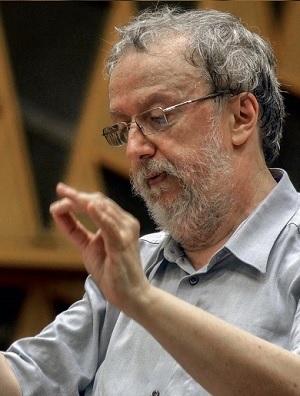The journey of musical works from author to performer
The task of the music publisher is to put manuscripts (be they paper or computerised) into a form that is legible, inspiring, and easy to use for performers; and to ensure the promotion, distribution, and legal use of the works.
With 75 years of experience behind us, we do this honourable work with consideration, commitment, and enthusiasm.
We thank the composers and music teachers who entrust their works to us.
Serei, Zsolt

Biography
Zsolt Serei was born on April 3, 1954, in Takácsi, in western Hungary.
In 1973–1978 he studied composition with Endre Szervánszky and Emil Petrovics at the Ferenc Liszt Academy of Music in Budapest, than he also graduated in conducting as a pupil of Endre Szervánszky and Emil Petrovics in 1982. In addition he studied privately under Zoltán Jeney and Albert Simon.
From 1978 to 1990 he was member of the Budapest–based New Music Studio. He took part in the ensemble’s concerts as an instrumental performer, as conductor and as a composer.
Since 1986 he has taught in the Composition Department at the Ferenc Liszt Academy of Music.
In 1989 he founded the Componensemble instrumental group, which – during its two decades long activity – was one of the most important base of Hungarian contemporary music performances.
The Hungarian premieres given by the Componensemble have included those of Eclat/Multiples by Pierre Boulez, What Is the Word by György Kurtág, and For Samuel Beckett, Routine Investigation and For Frank O’Hara by Morton Feldman’s. Apart from chamber works by 20th-century classics such as Berio, Boulez, Xenakis and others, the ensemble’s repertoire predominantly features contemporary Hungarian music. As director of the Componensemble Zsolt Serei has made many radio and TV recordings of compositions by Hungarian contemporary composers.
In 1991 he conducted the Dutch Niew Ensemble in works by Pierre Boulez.
His works Rege (1982 in Brussel) and his Calyx (1986 in Budapest) were performed at the program of the ISCM Festivals.
Prizes
Artisjus Prize with Comonensemble (several times) for the outstanding performances of new Hungarian Music; Soros Foundation Prize (1999); Erkel Prize (2003); Artisjus Prize (2003); Bartók–Pásztory Award (2010)
 English
English Español
Español Français
Français Magyar
Magyar Polski
Polski Română
Română Slovenský
Slovenský Slovenščina
Slovenščina 中文
中文







